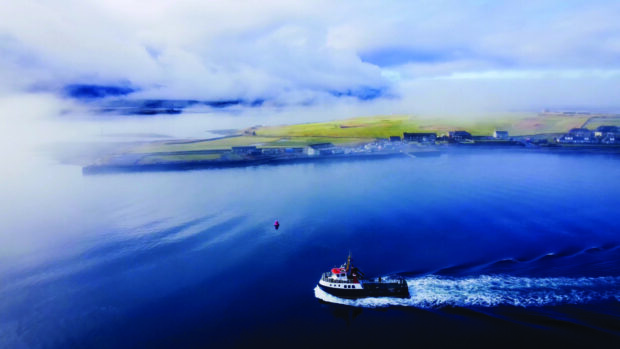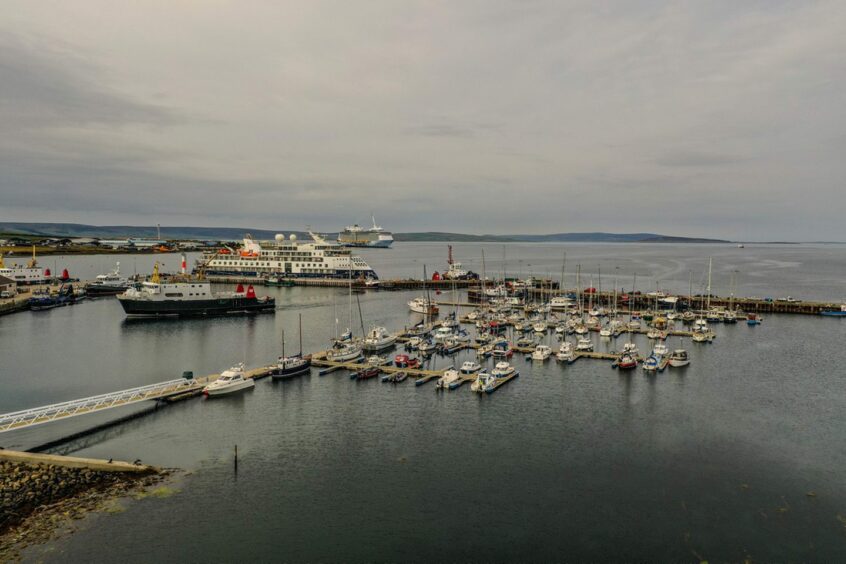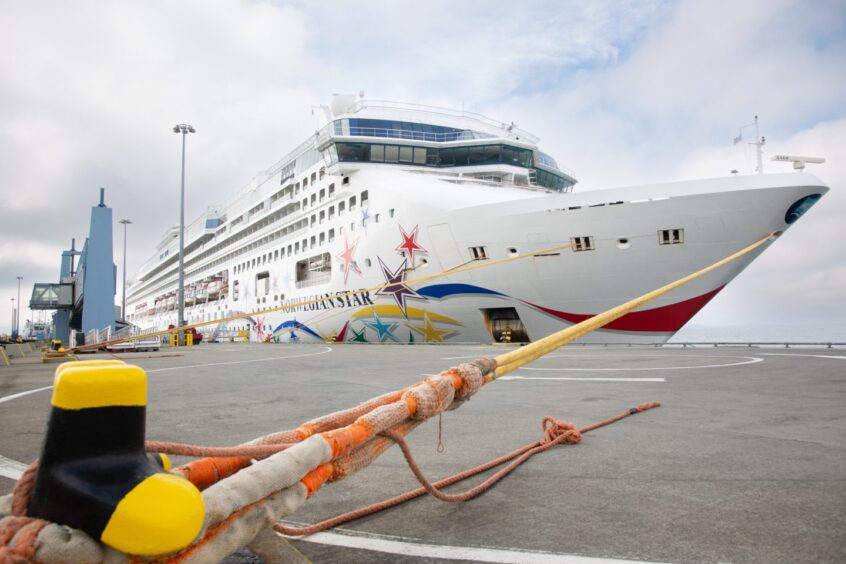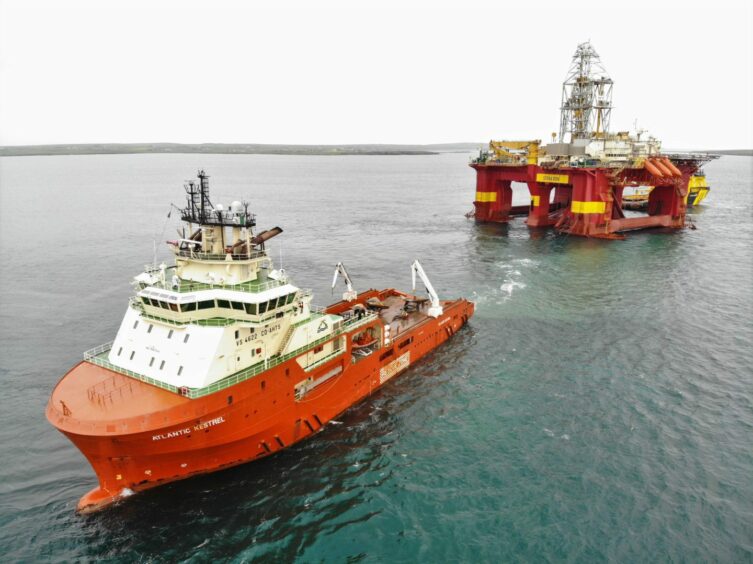As we move through 2024, Orkney Harbours finds itself in a strong position to consolidate on the successes of the past year.
-
Some Press and Journal online content is funded by outside parties. The revenue from this helps to sustain our independent news gathering. You will always know if you are reading paid-for material as it will be clearly labelled as “Partnership” on the site and on social media channels.
This can take two different forms.
“Presented by”
This means the content has been paid for and produced by the named advertiser.
“In partnership with”
This means the content has been paid for and approved by the named advertiser but written and edited by our own commercial content team.
There were some record figures in 2023 and huge progress in the Orkney Harbours Masterplan, which will cement the port’s position as one of the leading marine sites in the UK and a bastion of renewable innovation.
At the heart of this was the launch of the Orkney Future Ports scheme. The project will position the islands as leaders in the energy transition by enhancing their capabilities in the burgeoning offshore wind industry.
Scapa Flow and Hatston Pier
There are two main projects involved in this. First, there is the ambitious Scapa Deep Water Quay initiative, which, depending on final financial decision, has the potential to develop Scapa Flow into a national asset for offshore wind infrastructure. Another project in the OFP brand will see the feasibility of making Scapa Flow a licensed location for temporary wet storage for the floating market.
Additionally, the expansion of Hatston Pier into the Orkney Logistics Base underscores Orkney’s commitment to being a hub for diverse industries, from offshore wind to aquaculture. The project promises to enhance Orkney’s berthing capabilities and support its economic diversification efforts.
However, a lack of government funding is hampering progress on these projects.
Paul Olvhoj, business development manager at Orkney Harbours, said: “Both Scapa Deep Water Quay and Hatston Extension are in planning and we continue to engage with the procurement process to have projects that are shovel-ready by the end of the year as was set out by our owners, Orkney Islands Council. The lack of government funding means that there is uncertainty of the final approval and an increased risk in projects not moving forward and port infrastructure is critical offshore wind developments. .”
Cruise success
The continued growth of the cruise sector saw a record year for 2023 with 205 vessels calling at a range of locations across Orkney. These brought in over 200,000 passengers with an economic benefit to the local economy of £15 to £20 million.
Even more excitingly, 2024 looks set to be another record year. There are a record number of calls booked to the outer isles and there is strong growth across all types of cruise caller.
Never ones to rest on their laurels though, the team at Orkney Harbours are developing further plans to manage the cruise offer and are starting to look at a sustainable future with a baseline measuring of emissions from cruise starting this year.
Paul said: “Cruise is a very important part of our work at Orkney Harbours and we are continually striving to improve our offer and ensure that we work with stakeholders and local communities to keep Orkney at the top of cruise companies’ list. We have recently joined the Norwegian owned Environmental Port Index as a step towards becoming a sustainable destination.”
The way forward
Looking ahead, Orkney Harbours envisions a future characterised by innovation and sustainability. Orkney Future Ports sets the stage for transformative projects like Scapa Deep Water Quay and the Orkney Logistics Base, poised to cement Orkney’s status as a hub for renewable energy and maritime innovation.
Beyond the main developments of Scapa Deep Water Quay and the Orkney Logistics Base, planning is underway for Masterplan Phase 2, which will look at infrastructure across all the islands’ other locations.
Orkney Harbours is also committed to driving sustainability initiatives, exemplified by its partnership in the Zero Emission Vessel and Infrastructure fund (ZEVI). The first of the two ZEVI-funded ferries should arrive in late summer. Designed and built by Artemis in Belfast, these hydrofoil, all-electric, vessels will run on two routes to the Outer Isles and will enable Orkney to assess how these vessels work and strengthen connections with our communities.
Other projects include continuing to look at developing land under harbour ownership at Hatston, Stromness and Lyness and working with marine partners and stakeholders to develop small-scale project wins in these locations.
Finally, while renewables are the future, Oil and Gas is still here and the harbour continues to try and maximise opportunities in the ship-to-ship transfer market with strong chances of growth in this area, highlighting the location, facilities and experience in these type of operations. Other projects are also in the pipeline to provide not only income for the harbour but contracts for the local Orkney supply chain.
Orkney Harbours can be a pioneer in Scotland’s industrial economy and help pave the way to a bright and sustainable future.
To learn more visit the Orkney Harbours website.



